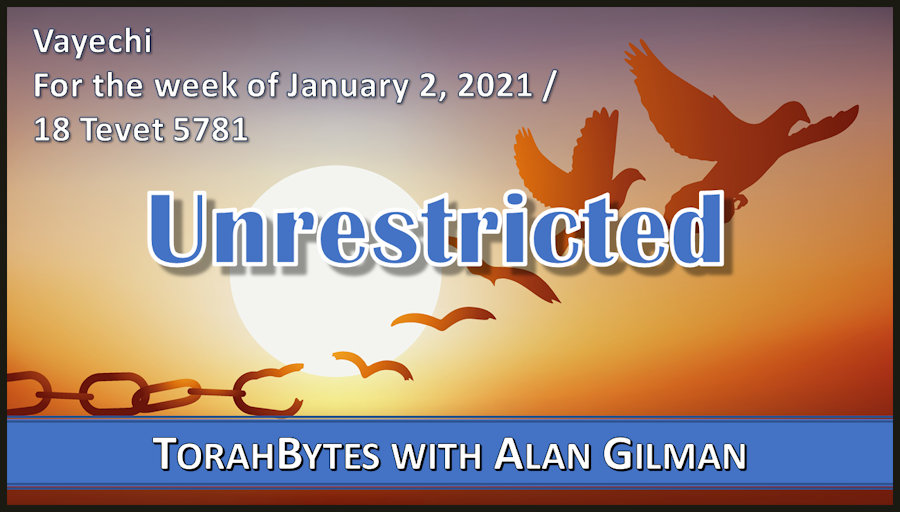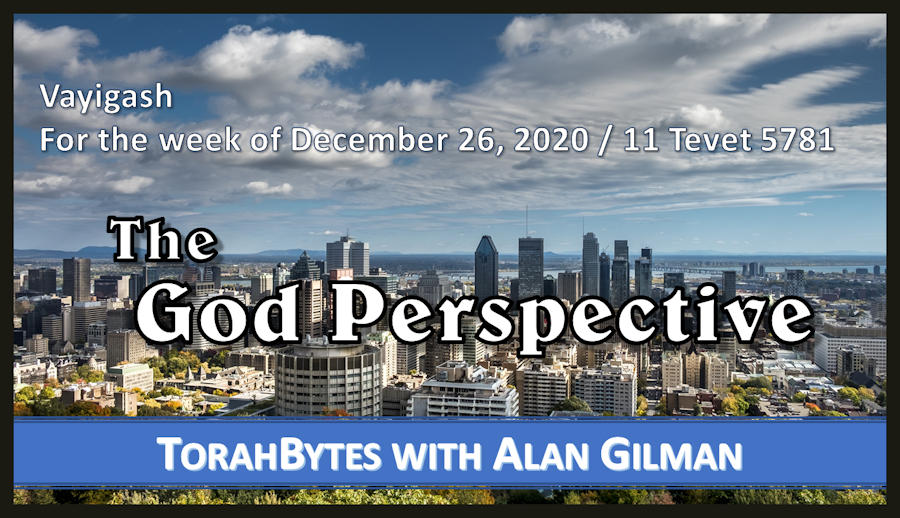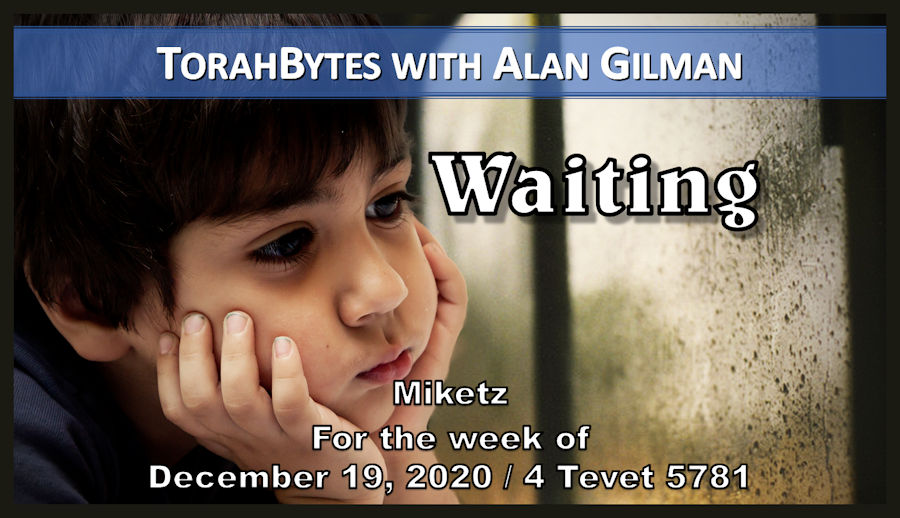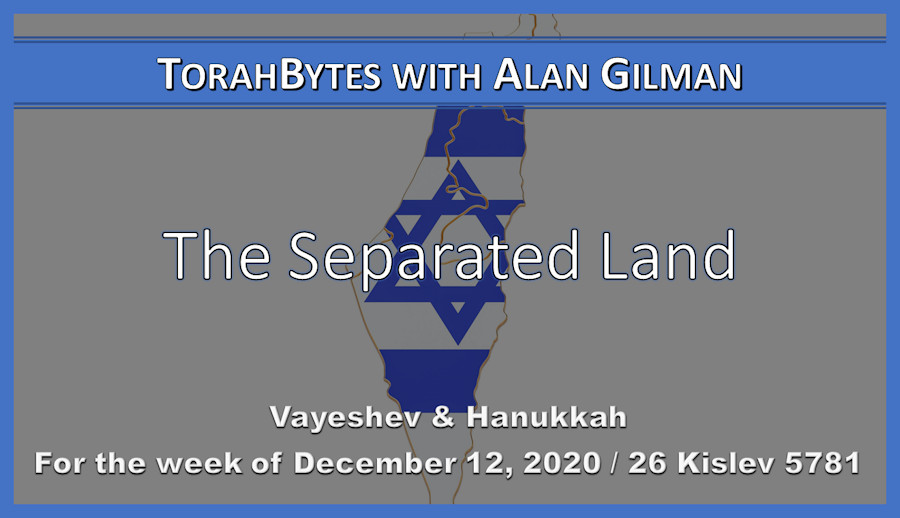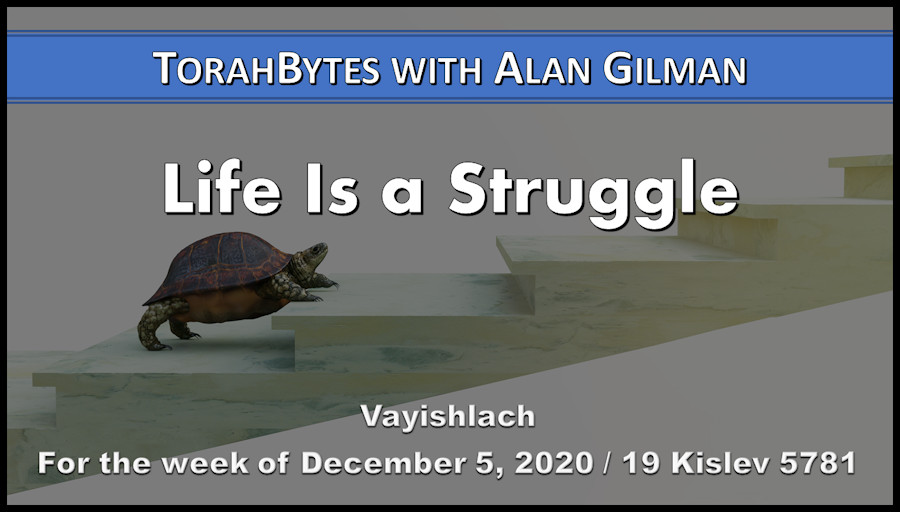For the week of January 2, 2021 / 18 Tevet 5781
Vayechi
Torah: Bereshit/Genesis 47:28-50:26
Haftarah: 1 Melachim/1 Kings 2:1-12
Download Audio [Right click link to download]
But Joseph said to them, “Do not fear, for am I in the place of God? As for you, you meant evil against me, but God meant it for good, to bring it about that many people should be kept alive, as they are today. So do not fear; I will provide for you and your little ones.” Thus he comforted them and spoke kindly to them. (Bereshit/Genesis 50:19-21)
This week’s Torah portion couldn’t have come at a better time. This year the eighteenth of Tevet on the Jewish calendar coincides with the second of January. 2020 has been a difficult year. When COVID-19 restrictions became the norm in much of the world in early spring, we thought that we would see the light at the end of the tunnel by now, if not be on the other side of it. While many place their hope on the various vaccines, we still have a long way to go. Where I live, in the Canadian province of Ontario, we are currently in yet another four-week lockdown.
Many people have suffered as a result of COVID-19, whether due to the illness directly or due to the restrictions. Through it all, I have taken comfort in the Scriptures’ perspective that no matter how difficult life may be, God is with us. A practical element of that is how God’s freedom from all constraint is available to those who are in right relationship with him through Yeshua the Messiah.
In the New Covenant Writings (aka the New Testament), this is exemplified by Paul when near the end of his life, he writes, “Remember Yeshua the Messiah, who was raised from the dead, who was a descendant of David. This is the Good News I proclaim, and for which I am suffering to the point of being bound in chains — but the Word of God is not bound in chains!” (2 Timothy 2:8-9; Complete Jewish Bible). He understood that despite his being bound in chains in a dungeon, the message of the Messiah was nonetheless unrestricted. Little did he know that this and several others of his letters, written in similar highly restricted circumstances, would bless the nations for the next two thousand years!
His awareness of the unrestricted nature of God’s word due to the overcoming of death by the Messiah, empowered him to fulfill his calling even while the superpower of his day had complete control over his life.
I have no doubt that Paul must have been spurred on by Joseph’s own restrictive experience. Sold into slavery by his own brothers, and later framed by his master’s wife, he spent about ten years in prison. I never cease to be amazed by how Joseph was able to emerge from that horrible place and not harbor bitterness against his brothers. They themselves believed that he was only being nice to them for the sake of their father, fearing after his death, Joseph would finally get back at them. But that was not to be, as Joseph accepted that God used their evil intentions for a greater good. His grasp of this was more than intellectual or theological. His understanding of God’s being at work in the midst of the most difficult of circumstances liberated him from the control of his circumstances.
The examples of Paul and Joseph should provoke us to view the current crisis with the eyes of faith. Faith doesn’t blind us to reality, but rather illumines reality so that we can see what is actually going on. We need to allow God to show us how he wants to fulfill his will in and through us. To do so requires our being open to however he wants to use us. It may be very different from anything we have ever experienced before. We may discover that the only thing that is truly restricting us is ourselves.
Scriptures taken from the English Standard Version unless otherwise noted
